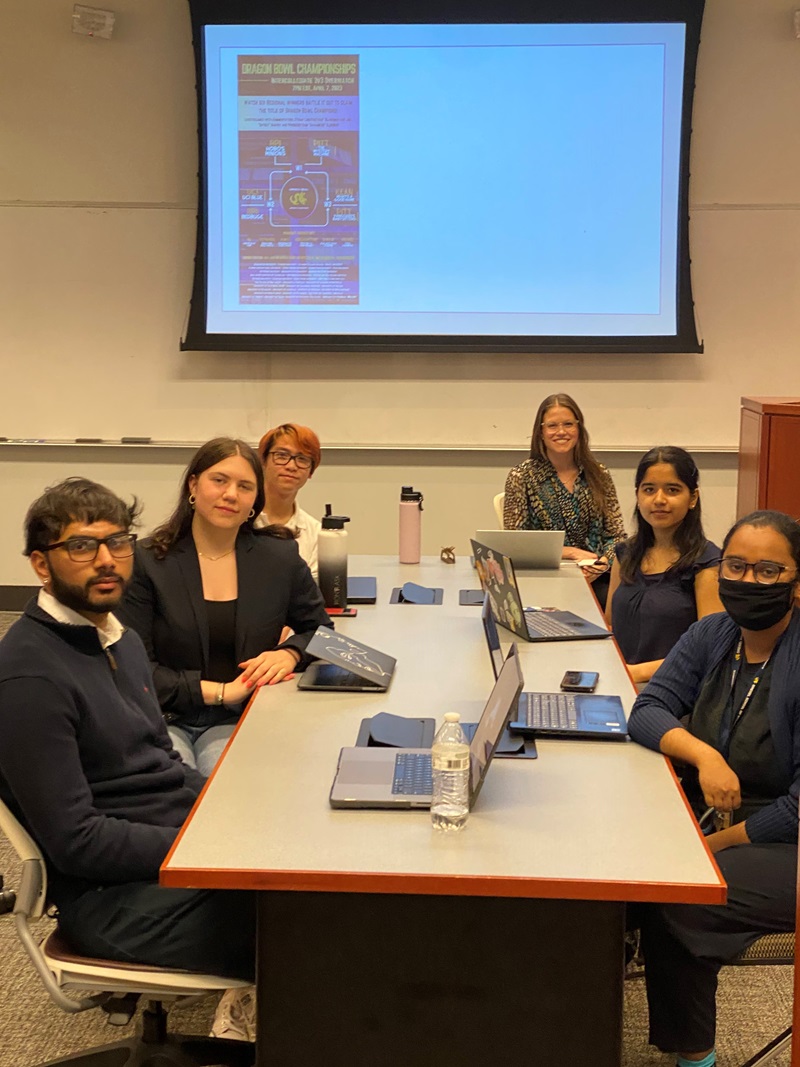Esports Tournament Provides Peek into Organizational Behavior
By Natalie Kostelni
Dragon Bowl 2.0, an intercollegiate Overwatch tournament hosted by Drexel Solutions Institute (DSI), was held for the second year and served as a research platform for students to study team personality and dynamics in esports.

Dragon Bowl is an integral part of the Research with Industry course offered in LeBow College of Business over two terms in the winter and spring and designed to provide students with hands-on research experiences using real-world subjects — gamers— and scenarios — an esports tournament.
Esports is a fast-growing industry that provides a window into aspects of organizational behavior, the study of how people interact within an organization. Gaming does not have official regulations governing teams and players, leading behavior that might otherwise be penalized in other sports to go unchecked. The anonymity of the online arena adds another dimension, allowing players to behave badly without consequences.
The combination of these factors unique to esports routinely leads to toxic interactions among players and has normalized these behaviors in the esports culture. The interplay of these dynamics has made the video gaming industry an area of interest for research, particularly in the realm of consumer behavior.
“The course was designed to provide an opportunity to see the research process from beginning to end,” said Madison LaBella (formerly Miller), a PhD candidate in organizational behavior at LeBow and a graduate research fellow at DSI. “Students had to come up with a relevant research idea and share their findings with teams, coaches and other people. For this group of students, they became fascinated with personality, toxicity and blaming.”
LaBella taught the course and designed it to include several guest lecturers who provided students with additional feedback and perspectives. Speakers included: Jeffrey Levine, who oversees LeBow’s undergraduate Esports Business Program; Youngdai Won, a PhD candidate in marketing at LeBow; and Hongjun Ye, a visiting assistant professor of marketing at University of Pittsburgh who was previously at Drexel.
Dragon Bowl, an organized esports contest, provided a window into how members of an esports team interact during competition. Won says research has shown a link between how teams operate and consumer behaviors.
“The study of combining esports and consumer behavior can have important implications for marketers who want to reach this demographic and understand esports fans and the industry more broadly,” Won said. “By having this information, businesses can develop more effective marketing strategies, products and services.”
Plans for the inaugural Dragon Bowl began in fall 2021 when Ye and LaBella, who was then a Drexel PhD student and later served as a teaching assistant for the Research with Industry course, saw tremendous possibilities to use video games as a platform for research.
Ye and LaBella worked with Raj Suri, senior vice provost of academic industry partnerships whose research focuses on consumer behavior, and Lauren D'Innocenzo, associate professor of organizational behavior and a provost solutions fellow, to launch what ended up being the first national intercollegiate esports tournament.
“Our goal was to use the real-life scenario of a video game tournament to study team processes, specifically how they unfold over time,” LaBella said.
This year, Dragon Bowl 2.0 involved two regional tournaments in which 60 teams representing 35 colleges and universities participated, an increase from the 28 schools participating last year. Drexel hosted the championship tournament April 7 on Twitch, an interactive live streaming service.
This year’s Research with Industry class engaged more undergraduate students across a range of majors and was designed to provide an opportunity to participate in all parts of a research process that had real-world applications. The students, half of which play or watch esports, were charged with developing a novel research idea that has real-world applications and theoretical contributions. Toxicity in the esports community led students to focus on blaming behavior and personality. After designing experiments and collecting data from the Dragon Bowl 2.0 tournament, students presented their research findings to an interdisciplinary audience.
“Esports is my passion and the course was really fun,” said Brian Ho, who switched to an esports major from accounting. “This was the perfect class for me to get experience and work with researchers. We did deep planning with our research questions and pushed to find what had been unanswered.”
Among the first-year students taking the course were: Erika Spletzer, an economics and business major; Shailyshreyee Tagore, an economics and data science major; and Suknti Dhungel, also a data science and economics major. Each said they were drawn to the course as an introduction to the principles of conducting research.
Nicholas Hom, a computer science major, found the premise of the course — mixing esports with research — appealing. It was only when Hom got deeper into the course that he realized all of the variables and time involved in constructing a comprehensive research project.
“I’ve learned a lot about how serious the workload for conducting research can be, especially with regard to using human test subjects,” Hom said. “If you’re someone who is already interested in learning how to conduct research and is curious about learning more about the psychology behind esports, there’s a lot to get out of this class.”
Dragon Bowl is gaining professional acclaim as well. A presentation on the course as a teaching tool and research platform called: “Student Engagement and Innovation through Research-Based eSports Tournaments,” was accepted for inclusion in the 2023 annual meeting of the Southern Management Association (SMA) scheduled for October in St. Pete Beach, Fla. “Ok, ok… I’m having serious #ScholarEnvy,” wrote one reviewer of the proposal for SMA.
In addition, research work completed by LaBella, Ye and Won that focuses on esports and consumer behavior was accepted by the Association for Consumer Research.